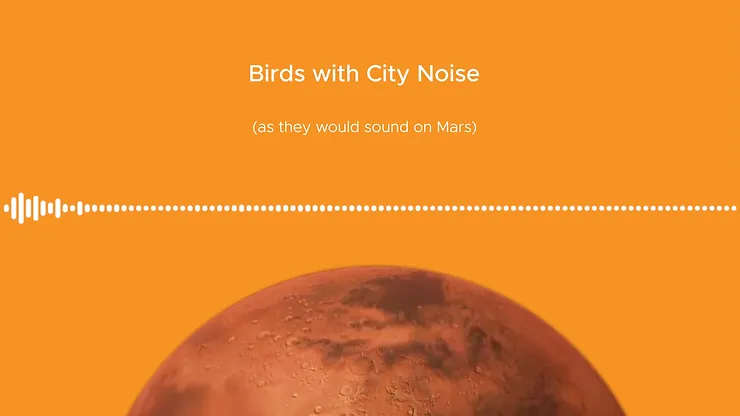By: Lucas Chi
If you were to travel to Mars, it would be very hard to communicate with even the people right next to you. This is because Mars’s thin atmosphere is made mostly out of carbon dioxide, which is not very good at carrying sound. This can make it seem like someone speaking next to is over 200 feet away.
NASA’s rover on Mars, the “Perseverance”, has been gathering information about not only the landscape and climate of the planet but also its sounds. For example, the rover could fire lasers at some small rocks, which would create a sound wave that the rover would then detect and record.
After collecting approximately five hours’ worth of sounds, NASA scientists were able to measure the speed of sound on Mars. After the team of scientists analyzed the gathered information, they found something mind-blowing.
On Earth, the speed of sound stays the same at 761 mph. miles per hour), while the speed of sound on Mars is different depending on the pitch. High-pitched sounds will go at around 559 mph, and low-pitched sounds will go at 537mph. The sounds will only travel a few meters before you can no longer hear them.
“It’s a pretty drastic difference from Earth,” says scientist Baptiste Chide. He also said that using a microphone and headset would be much more efficient for Mars communication, even when people are close together.
“For an Earthling, this may be surprising. But it makes sense,” says Andy Piacsek. He is a physicist at Central Washington University in Ellensburg. Although he wasn’t involved with the experiments, he still studies sound waves and their interactions with solids.
When a sound wave travels through air, or a fluid, it transfers energy from itself to the molecules around it. That energy will spread around, moving from molecule to molecule. This effect is called the relaxation effect. On Mars, the atmosphere has low pressure and is made mostly of carbon dioxide, which makes the sound waves relaxation for high-pitched sounds faster than low-pitched sounds.
Chide says that we can predict weather by studying the sounds on Mars because the sound waves depend on factors such as air pressure, temperature, and humidity.
Sources: sciencenewsforstudents.org











